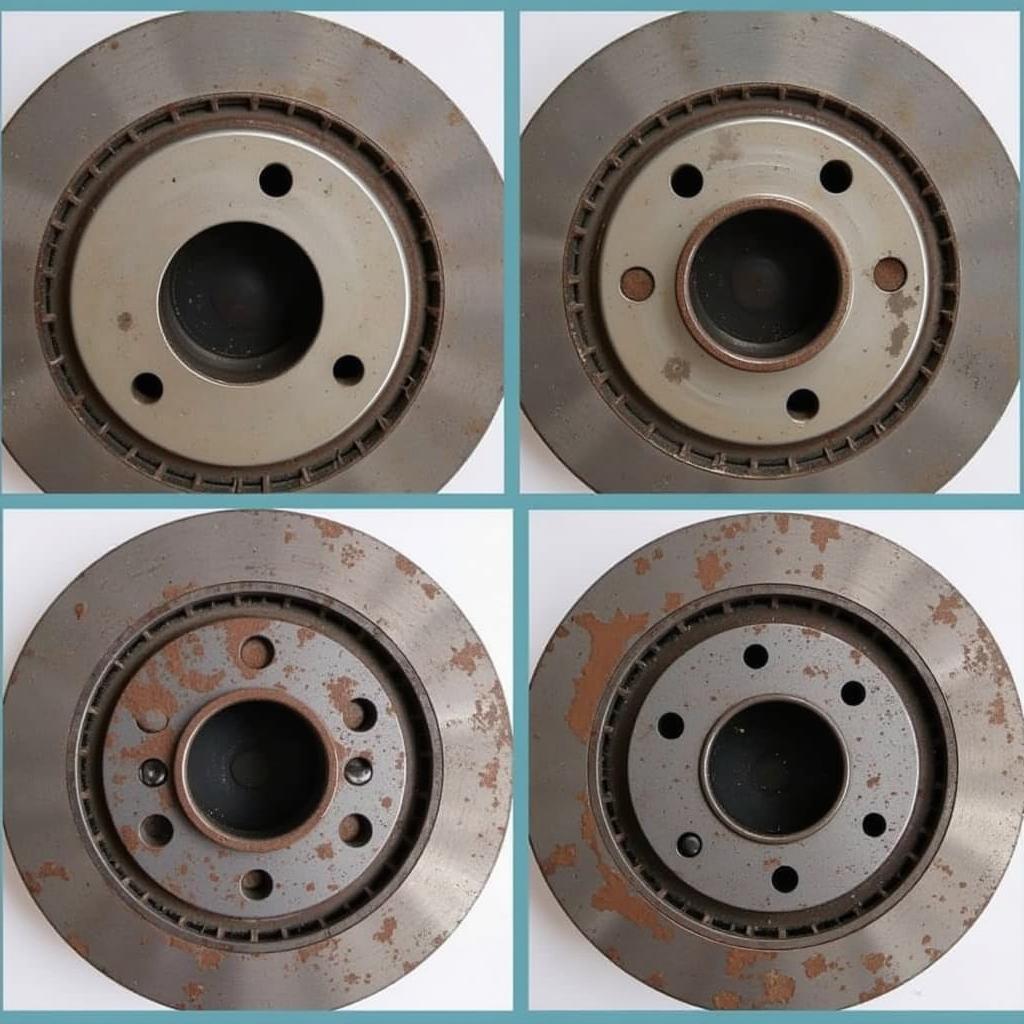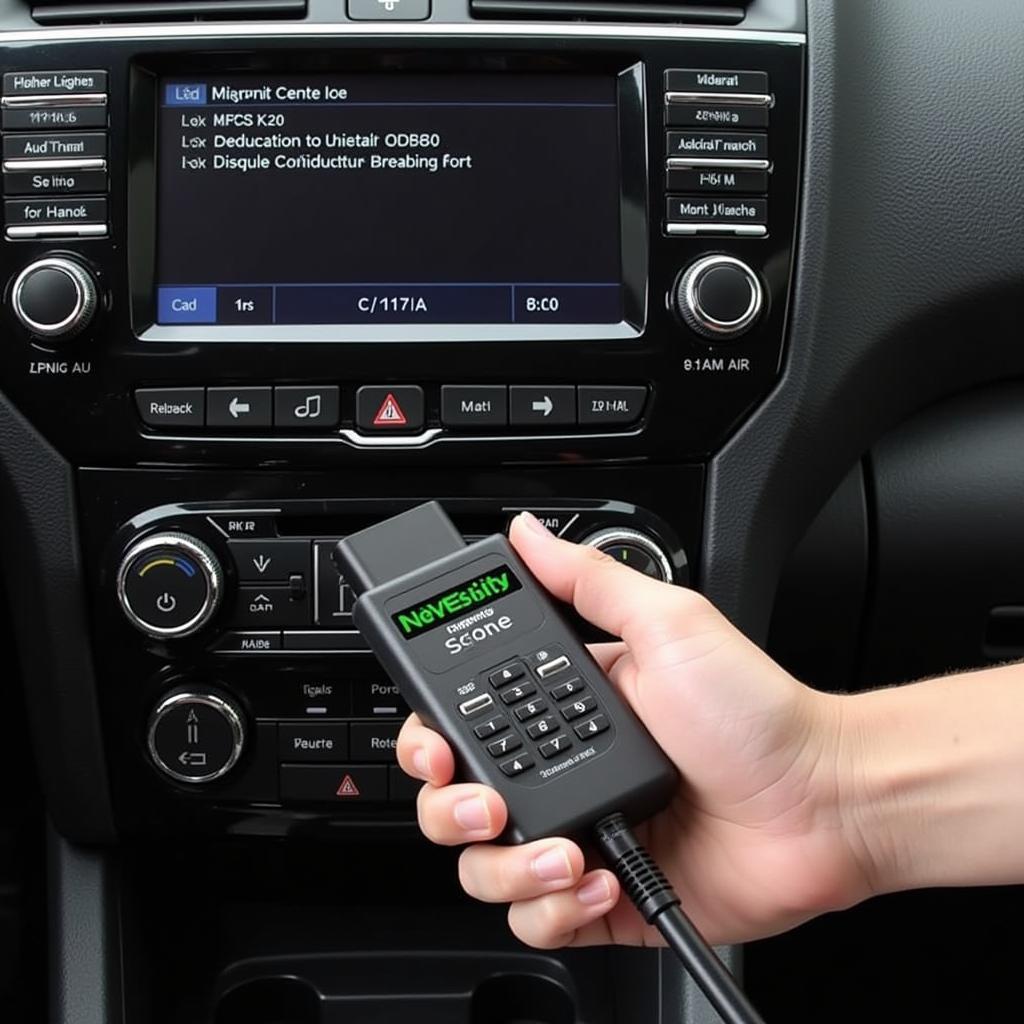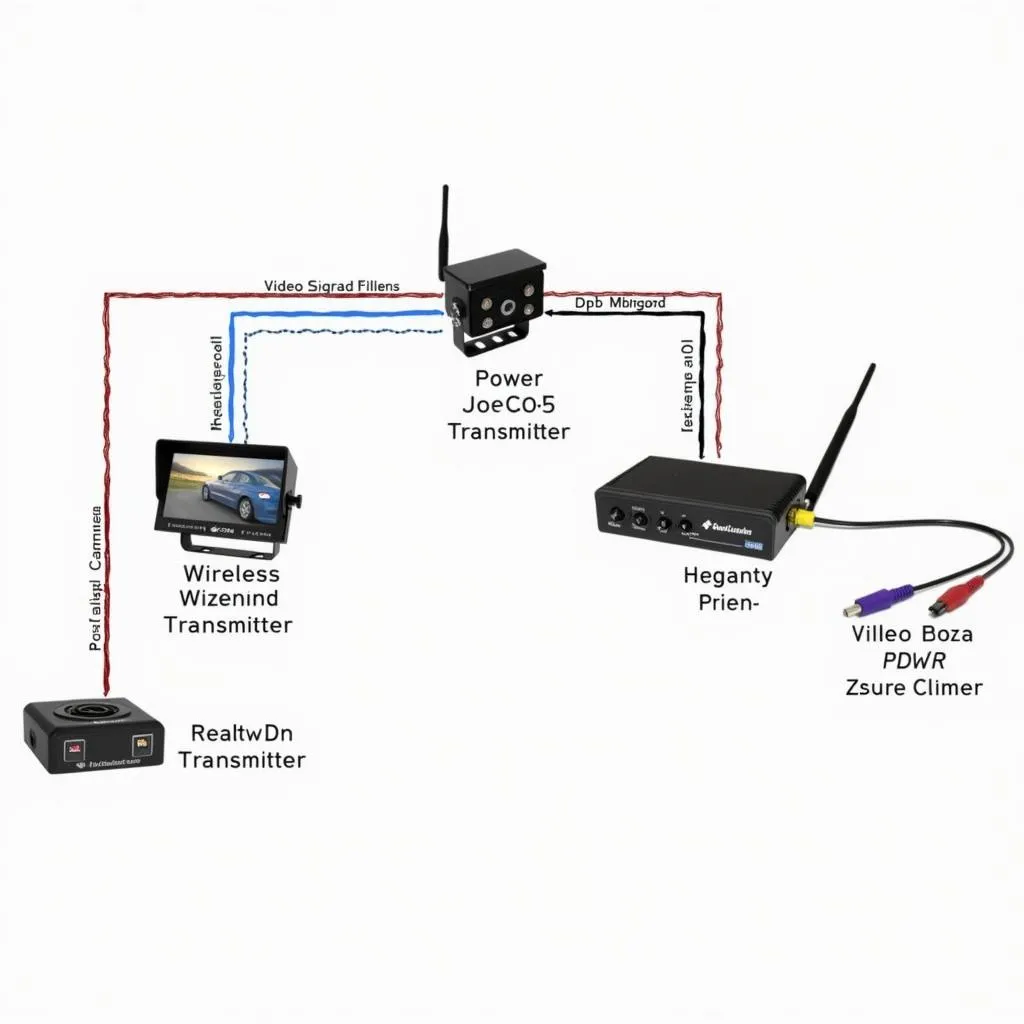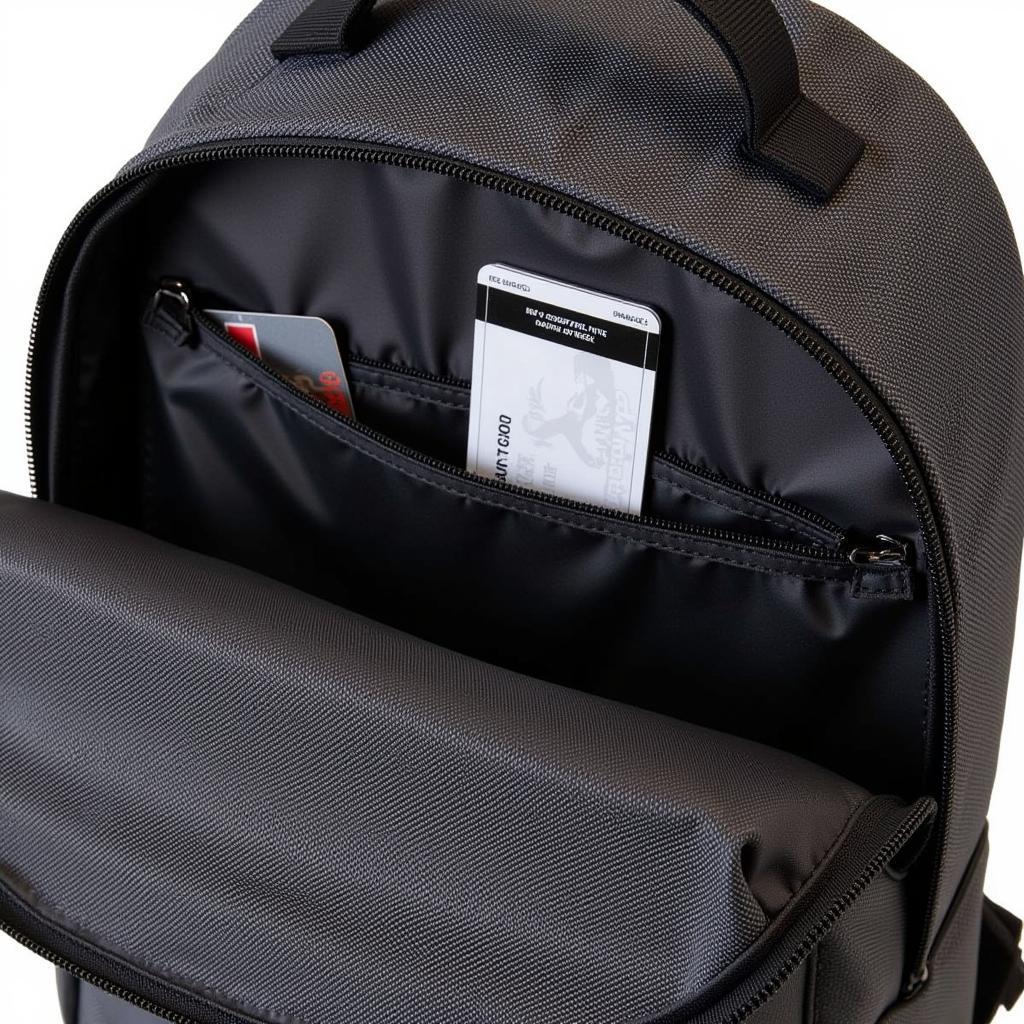The brake warning light on your Nissan Murano dashboard is a crucial safety feature. When illuminated, it signals a potential problem within your vehicle’s braking system that demands immediate attention. Ignoring this warning could lead to reduced braking performance and increase the risk of an accident. This comprehensive guide will delve into the common causes of a Nissan Murano brake warning light and provide potential solutions to help you get back on the road safely.
Understanding Your Nissan Murano’s Brake Warning Light System
Before we dive into the causes, it’s important to understand how your Murano’s brake warning light system functions. The warning light is directly connected to several components, including:
- Brake Fluid Level Sensor: This sensor monitors the brake fluid level in the master cylinder. A low fluid level often indicates a leak in the system.
- Parking Brake Switch: Engaging the parking brake activates this switch, illuminating the warning light. If the light stays on even when the parking brake is released, the switch may be faulty.
- ABS System: If there’s an issue with the Anti-lock Braking System (ABS), like a malfunctioning wheel speed sensor, the brake warning light might illuminate alongside the ABS warning light.
Common Causes of a Nissan Murano Brake Warning Light
1. Low Brake Fluid
One of the most frequent culprits behind a glowing brake warning light is low brake fluid. This usually points to a leak somewhere in the system.
What to do:
- Check the brake fluid level: Locate the brake fluid reservoir under the hood, usually a translucent container with a “Minimum” and “Maximum” marking. If the fluid level is below the “Minimum” mark, add the recommended brake fluid for your Murano model (check your owner’s manual).
- Inspect for leaks: Carefully examine the brake lines, hoses, and connections near each wheel and around the master cylinder for any signs of fluid leakage. Leaking brake fluid appears as a clear or yellowish liquid.
2. Worn Brake Pads
Brake pads are designed to wear down over time. When they become too thin, the brake pad wear indicator will contact the rotor, triggering the warning light.
What to do:
- Listen for noises: Worn brake pads often produce a high-pitched squealing or grinding noise when braking.
- Inspect brake pad thickness: If you’re comfortable with basic car maintenance, you can visually inspect the brake pads by looking through the spaces between the wheel spokes. If the pad material is less than ¼ inch thick, it’s time for a replacement.
 Worn Brake Pads
Worn Brake Pads
3. Faulty Brake Light Switch
The brake light switch, located near the brake pedal, activates your brake lights when you apply the brakes. A malfunctioning switch can confuse the brake warning light system.
What to do:
- Check brake light functionality: Have someone observe the brake lights while you press the pedal. If they don’t illuminate, the switch could be the issue.
- Listen for unusual noises: A clicking sound when pressing or releasing the brake pedal may indicate a faulty brake light switch.
4. ABS Problems
Modern Nissan Muranos come equipped with Anti-lock Braking Systems (ABS). Issues within the ABS, such as a faulty wheel speed sensor, can trigger the brake warning light alongside the ABS warning light.
What to do:
- Check for the ABS warning light: If the ABS warning light is also illuminated, it indicates an issue specifically with the ABS system.
- Retrieve diagnostic trouble codes (DTCs): Use an OBD-II scanner to retrieve any stored diagnostic trouble codes related to the ABS system. These codes can pinpoint the exact location of the problem.
 OBD-II Scanner
OBD-II Scanner
When to Seek Professional Help
While some causes of a Nissan Murano brake warning light are easy to diagnose and address, others require professional expertise. If you encounter any of the following, it’s best to seek help from a qualified mechanic:
- You’re uncomfortable performing the checks and repairs mentioned above.
- You suspect a brake fluid leak but can’t locate its source.
- You’ve added brake fluid, but the warning light persists, indicating a leak you can’t find.
- The ABS warning light remains illuminated even after addressing potential issues.
Expert Insights
“Regular brake system inspections are crucial for maintaining optimal performance and safety,” says John Smith, a certified automotive technician with over 15 years of experience working on Nissan vehicles. “Don’t ignore the brake warning light, even if it seems intermittent. Addressing potential issues early can prevent more costly repairs down the line.”
Conclusion
The brake warning light on your Nissan Murano is a critical safety feature that should never be ignored. By understanding its potential causes and solutions, you can take proactive steps to ensure your braking system remains in optimal condition, keeping you and your passengers safe on the road. However, if you’re ever in doubt or uncomfortable tackling brake-related repairs yourself, don’t hesitate to seek help from a qualified mechanic.
FAQs
- Can I still drive my Nissan Murano with the brake warning light on?
It’s highly discouraged to drive with the brake warning light on. Doing so could jeopardize your safety and lead to further damage to your braking system. - How often should I check my Nissan Murano’s brake fluid level?
It’s a good practice to check your brake fluid level at least once a month and more frequently if you notice any changes in brake pedal feel or responsiveness. - How long do Nissan Murano brake pads typically last?
Brake pad lifespan varies depending on driving habits and conditions. Generally, they can last anywhere between 30,000 to 70,000 miles. - Is it safe to add brake fluid myself?
Yes, you can add brake fluid yourself. Just make sure to use the correct type of brake fluid specified in your owner’s manual and avoid spilling any on painted surfaces. - Can a faulty parking brake trigger the brake warning light?
Yes, a faulty parking brake switch can cause the brake warning light to illuminate even when the parking brake is fully disengaged.


